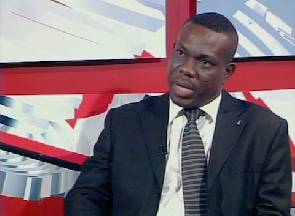 The Dean of Students for the Institute of Local Government Studies, Dr Eric Oduro Osae, has called on the government to declare September 1, 2015, the date for the district-level and unit committee elections as a public holiday. The Dean of Students for the Institute of Local Government Studies, Dr Eric Oduro Osae, has called on the government to declare September 1, 2015, the date for the district-level and unit committee elections as a public holiday.
“This will show true meaning and true national commitment to decentralisation and also free a lot of people to go and vote,” he said.
Dr Osae, who was speaking in an interview on the forthcoming district and unit committee elections scheduled for September 1, 2015, explained that because of the postponement of the elections, many people who were not prepared to go to their hometowns to vote would be encouraged to do so if the day was declared a holiday.
Whip up interest
He also called on traditional and religious leaders in the various communities to join the campaign to whip up enthusiasm in the electorate to vote.
“The district-level election is one of the most important elections when it comes to democracy or local level democracy and the assembly member is an important person in the life of every Ghanaian,” he explained.
Dr Osae, therefore, appealed to all citizens to go to the polling stations on Tuesday, September 1, 2015 to vote.
He stated that the success of the district-level elections would be a signal that the 2016 general election would be successful.
Dr Osae also said the election was a test of how successful the 2016 elections would be.
He therefore invited the security agencies to step up their readiness to ensure that the elections would be incident-free.
“As we rehearse 2016, if we are able to have a successful district-level elections, I am very positive that we will have a free, fair and peaceful elections in 2016,” he said.
Smooth elections
Dr Osae appealed to all aspirants who might lose in the elections to accept defeat to reduce the tension in the country.
He urged the National Commission for Civic Education (NCCE) to step up its education on the elections and also advised the Electoral Commission (EC) to consider the district-level elections as a very important democratic exercise and ensure that electoral materials were sufficient and reached the various polling centres on time.
“The EC should make sure that we do not face the challenge of electoral materials not getting to the electoral areas; shortage of electoral materials should be discouraged and also, we should test-run our biometric machines so that we don’t face the challenge of having malfunctioning biometric machines or push the elections to another day,” he said.
Impact of absence of assembly members
Touching on the impact of the absence of assembly members since the beginning of the year, Dr Osae said it did not only affect the development projects, but also affected the administration of the district assemblies.
“Because the assembly members are not there, the finance and administration subcommittee of the assembly that usually reviews the periodic trial balances and financial statements of the assembly to be able to point out loopholes in the assembly are not functioning,” he explained.
In addition, Dr Osae explained that since the assemblies did not have presiding members, the audit report implementation committees, which received the internal and external audit reports and put the management of the assembly on its toes to implement the recommendation of the committee were not functional.
“What that means is that the auditors are auditing but the reports will be sitting on the shelves and the recommendations are not being implemented,” he explained.
2016 budget
On the development of the budget for 2016, he said the composite budget of the assemblies for 2016 was expected to be completed and submitted to the Ministry of Finance to be incorporated into the national budget for presentation to Parliament in November.
“This budget has been developed up to this point without the input of the assembly members and if we are not very careful and we don’t get the assembly members in place to approve the budgets, that means this budget will get to the Ministry of Finance to be incorporated in the national budget without the input of the assembly members,” Dr Osae said. |